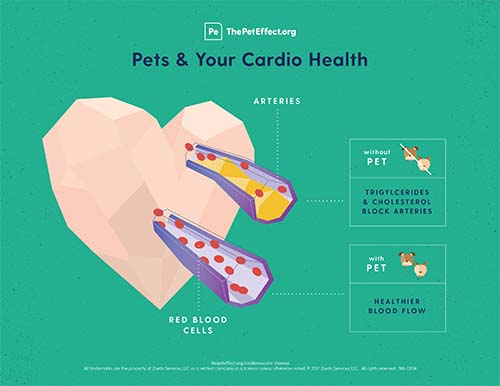Human Animal Bond Research Initiative Announces Results of First Research Project
Washington, D.C. (September 21, 2015) — The Human Animal Bond Research Initiative (HABRI) Foundation today announced the publication of a systematic literature review on Animal-Assisted Intervention (AAI) for trauma in the journal Frontiers in Psychology. The findings demonstrated that the animals helped ease anxiety, reduce depression, and mitigate symptoms of post-traumatic stress.
This is the first published study of more than a dozen HABRI-funded research projects examining the effects of companion animals on human health. Marguerite E. O’Haire, PhD, of Purdue University, systematically collected and critically assessed current research from a variety of electronic databases, including HABRI Central, on AAI for trauma in order to more closely look at the empirical data that evaluates the practice of animal inclusion in psychological treatment. Participants in the studies were predominantly survivors of child abuse, followed by military veterans. The most common animals included in treatment were dogs and horses.
“We conclude that AAI may provide promise as a complementary treatment option for trauma, but that further research is essential to establish feasibility, efficacy and manualizable protocols,” said Dr. O’Haire.
The study researched current evidence that suggests animals may provide unique elements to address several PTSD symptoms. For example, people with PTSD often experience emotional numbing, yet the presence of an animal has been reported to elicit positive emotions and warmth. Animals have also been demonstrated as social facilitators that can connect people and reduce loneliness, which may assist individuals with PTSD break out of isolation and connect to the humans around them.
“Based on Dr. O’Haire’s work, HABRI has further evidence that AAI can positively affect depression, anxiety, social outcomes, sleep, child functioning and quality of life,” said HABRI Executive Director Steven Feldman. “With this important study as a roadmap, HABRI has committed funding for a study of the impact of service animals for post-September 11th war veterans and for a study on equine therapy for survivors of domestic violence.”
About HABRI
Founded by Petco, Zoetis, and the American Pet Products Association and supported by a growing number of organizations, the HABRI Foundation maintains the world’s largest online library of human-animal bond research and information; to date has funded more than half a million dollars in innovative research projects to scientifically document the health benefits of companion animals; and informs the public about human-animal bond research and the beneficial role of companion animals in society. For more information about the HABRI Foundation, visit www.habri.org.
Contact
Jamie Baxter
jamie@theimpetusagency.com
775.322.4022
###





